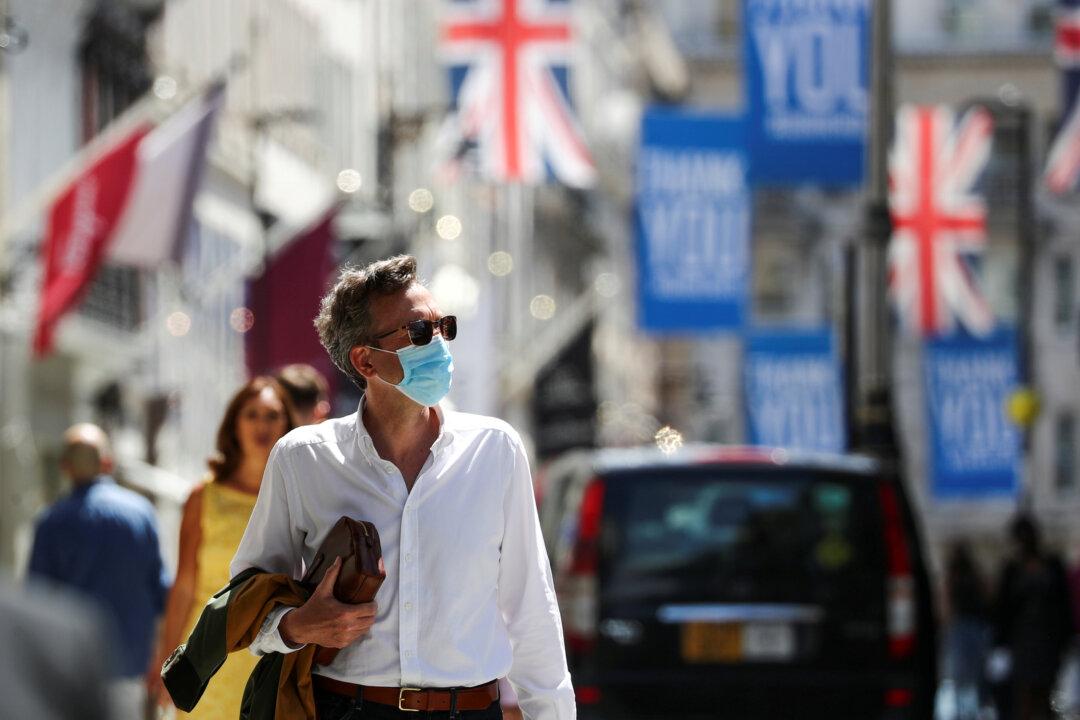LONDON—British retail sales jumped back almost to pre-coronavirus lockdown levels in June when non-essential stores in England reopened, giving a boost to beleaguered clothing stores.
Sales volumes in June leapt by 13.9 percent from May, above all forecasts in a Reuters poll of economists.





